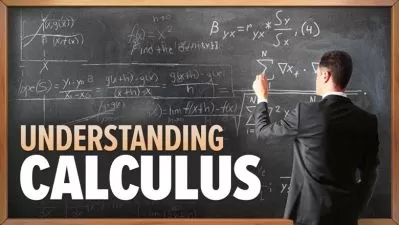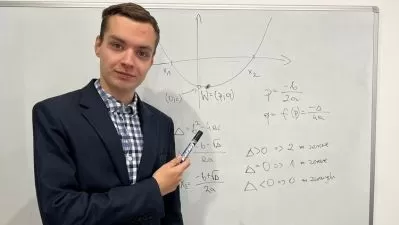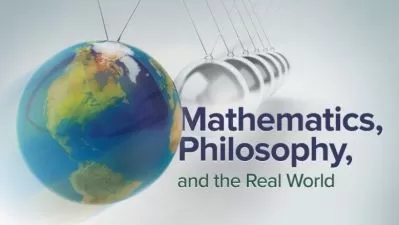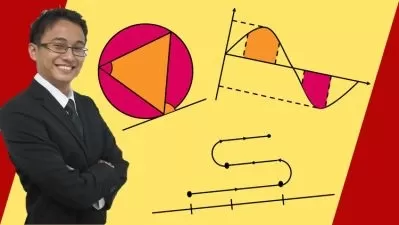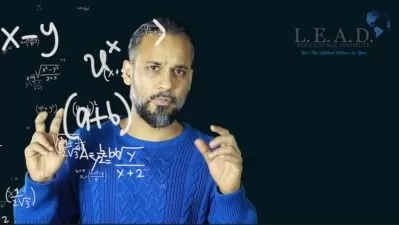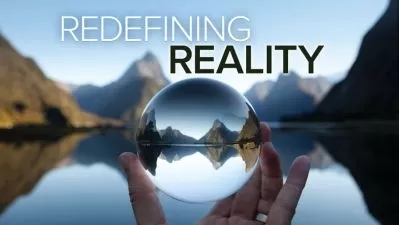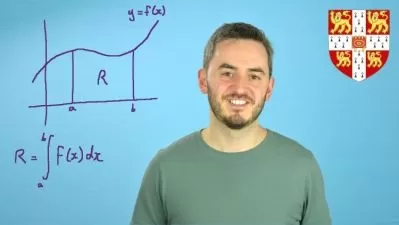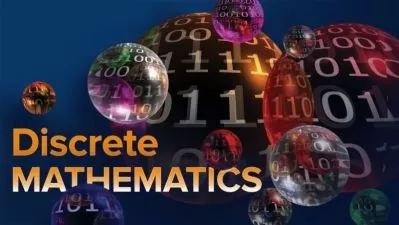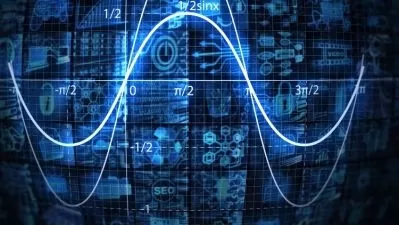Mind-Bending Math: Riddles and Paradoxes
David Kung
12:20:47
Description
Great math riddles and paradoxes have a long and illustrious history, serving as both tests and games for intellectual thinkers across the globe. Passed through the halls of academia and examined in-depth by scholars, students, and amateurs alike, these riddles and paradoxes have brought frustration and joy to those seeking intellectual challenges.
In addition, it’s well known that brain exercises are as fundamental to staying sharp as body exercises are to staying fit. Stretching your mind to try to solve a good puzzle, even when the answer eludes you, can help improve your ability to focus.
Now, in the 24 lectures of Mind-Bending Math: Riddles and Paradoxes, you’ll explore the ageless riddles that have plagued even our greatest thinkers in history—confounding the philosophical, mathematical, and scientific minds grappling to solve them. You’ll learn how to break down, examine, and solve these famous quandaries.
From Ancient Greek philosophers to noodling through an unusual enigma involving spaghetti, you’ll cover a wide range of amazing—and in some cases history-changing—conundrums, such as:
- Zeno’s astonishing argument that motion itself is impossible
- The compelling conundrum of infinity, which didn’t garner a resolution until the 1900s
- Gödel’s strange loop, ascertaining no axiom system would work to prove mathematical theorems
- The Banach–Tarski paradox, proving that one can cut up a ball and reassemble the pieces into two balls, each the same size as the original
- More mind-bending math games that have endured through time, including the Liar’s Paradox, the Prisoner’s Problem, and the Monty Hall Problem
When it comes to delving into topics such as bending space and time, and topological universes, you need a knowledgeable and captivating instructor, which you get in abundance with Professor of Mathematics David Kung. He infuses each lesson with fun tangents, stories, and real-life riddles, making this one of the most intriguing and entertaining math courses available.
This mesmerizing course will have you contemplating everything from the enthralling paradox of paradoxes to the potential pitfalls when it comes to buying apples—using basic logic and math principles as the fundamental connector to solve exciting, mind-bending mysteries.
More details
User Reviews
Rating
David Kung
Instructor's CoursesDr. David Kung is Professor of Mathematics at St. Mary's College of Maryland. He earned his B.A. in Mathematics and Physics and his Ph.D. in Mathematics from the University of Wisconsin, Madison. Professor Kung's musical education began at an early age with violin lessons. As he progressed, he studied with one of the pioneers of the Suzuki method and attended the prestigious Interlochen music camp. While completing his undergraduate and graduate degrees in mathematics, he performed with the Madison Symphony Orchestra. Professor Kung's academic work focuses on mathematics education. Deeply concerned with providing equal opportunities for all math students, he has led efforts to establish Emerging Scholars Programs at institutions across the country. His numerous teaching awards include the Homer L. Dodge Award for Excellence in Teaching by Junior Faculty, given by St. Mary's College, and the John M. Smith Teaching Award, given by the Maryland-District of Columbia-Virginia Section of the Mathematical Association of America. Professor Kung's innovative classes, including Mathematics for Social Justice and Math, Music, and the Mind, have helped establish St. Mary's as one of the preeminent liberal arts programs in mathematics. In addition to his academic pursuits, Professor Kung continues to be an active musician, playing chamber music with students and serving as the concertmaster of his community orchestra.

The Great Courses
View courses The Great Courses- language english
- Training sessions 25
- duration 12:20:47
- English subtitles has
- Release Date 2023/08/19






